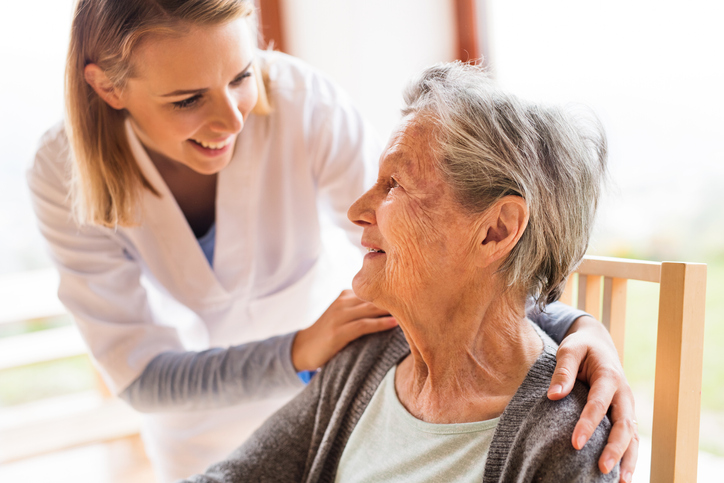Alzheimer’s Society

Caregivers of people with Alzheimer’s disease may experience a vast range of emotions, both positive and negative when helping their loved one.
There are many ways to help someone manage the effects of Alzheimer’s, including those in this article. Caregivers may require help from other family members or professional healthcare services as their loved one’s condition progresses.
Self-care is a vital but often overlooked aspect of caregiving. Caregivers can prevent adverse health effects from stress by building a strong support network, protecting their physical health, and practicing self-compassion.
Understanding the Brain Function of Alzheimer’s Disease
In order to better understand why ADL is among several of the basic requirements to live normally and freely, it’s imperative to understand how the brain changes when a person is stricken with Alzheimer’s Disease (AD).
AD causes the neurons in the brain to die, resulting in the loss of connections between these networks of neurons. As these neurons break down and the brain begins to shrink, the loss of function and ability to communicate occurs. When the brain shrinks, also known as, brain atrophy, there is also a loss of brain volume, affecting the memory and the capability of making sound judgments—this is because inadequate decision-making skills are eventually affected as the neurons continue to die off. Losing the ability to speak, think, reason and function independently, is all part and parcel to this loss of brain connection, making it difficult, if not impossible, to perform Activities of Daily Living.
Loss of Activities of Daily Living Functions
The clear warning signs that a person is starting to lose or has lost their ability to sufficiently perform the functions of Activities of Daily Living is when you observe that a person no longer has the interest or ability to properly perform these tasks. Perhaps they have always been fastidious with their own self- care and hygiene but now you begin to notice that their clothes are soiled and no longer match, their hair is disheveled or makeup is not properly applied. In addition, their balance may become an issue which may make it difficult for them to get dressed independently.
You may also notice that the person has lost their capacity to understand the proper sequencing of events, such as getting dressed—putting a bra on top of a shirt or remembering how to button a shirt or zipper pants. They might forget to put a hat and coat on when going outside in the wintertime or the inability to properly follow the steps of a recipe. In the end, this could very well indicate that there is a decline in cognitive function, therefore, the competency level to perform ADL has been compromised.
Often, it can be difficult for a person with dementia to recognize that they need assistance with their Activities of Daily Living—frustration, fear and anger are most common. They may not understand that they are improperly brushing their teeth, combing their hair or bathing. Spatial and visual changes can also occur making it difficult to perform the ADL tasks.
Helping with ADL Tasks
First and foremost, when helping someone to perform ADL tasks, it is important to remain as calm and patient as possible. The person you are helping, especially during the early stages of AD, may very well recognize that this is happening and will be experiencing the emotions of frustration, sadness, anger and fear. Here are few tips in helping someone who may need assistance in ADL, particularly if they are not yet in a full care environment.
- Allow plenty of time for them to perform their task (s)—they may very well want to try to accomplish it on their own. Assist when needed.
- If sequencing is an issue, model the behavior by showing them each step as slowly and as reassuringly as possible.
- Give one direction at a time as they probably cannot absorb more than the one directive.
- If getting dressed, bathed and accomplishing basic hygiene seems to be the prominent issue, set up a schedule where the routine remains constant each day.
To ensure safety of our loves ones, we must recognize when they are no longer able to effectively perform Activities of Daily Living. As always, if you fear there is an issue, be sure to consult a physician for further evaluation.

